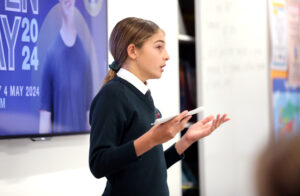Sustainability: Our Students Driving Change – Jennifer Oaten
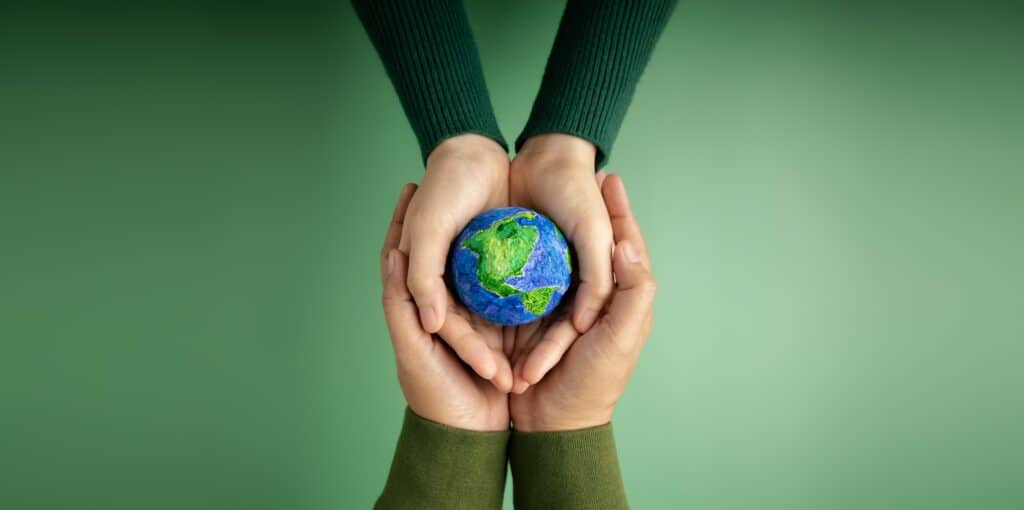
Sustainability is everyone’s responsibility, educators, students and parents; we all have a role to play in preserving and caring for our precious planet today and into the future.
“Sustainability is how we live so that others can live.”
George Georgiadis
I believe our young people can and will be the drivers of this change. We need to harness their passion for sustainability. Our role is to ensure they learn and understand the vital role they can play in sustaining our planet. The College is part of an ecosystem that provides an opportunity for students to explore, investigate, understand, and communicate about the environment and, most importantly, to take action both at school, at home and in the community.
Our strategic pillar of Social Innovation drives us to take responsibility for educating our students on sustainability and the crucial role they play in preserving our planet. In this blog post, we will delve into the current environmental crisis and its impact and outline specific ways in which we are educating our students to be a powerful force in driving change toward sustainability.
Why should we be concerned?
Our world is facing an environmental crisis of unprecedented proportions. Climate change, deforestation, pollution and resources. Rising temperatures and extreme weather events disrupt agricultural productivity, leading to food shortages and escalating prices. Air and water pollution contribute to respiratory diseases, cardiovascular problems, and a myriad of other health issues. Biodiversity loss jeopardises ecosystems on which we depend for clean air, water, and natural resources.
The consequences of these challenges are far-reaching, affecting everything from public health and food security to social stability and economic prosperity and are threatening the delicate balance of our ecosystems and endangering the future of humanity. Marginalised communities often bear the brunt of these challenges, exacerbating social inequalities.
Pope Francis, through his words, actions and writing of Laudato Si, encourages all people to be stewards and do their part to care for our earth.
It is imperative that we address these issues with urgency and commitment.
What is Santa Maria College doing?
Research consistently demonstrates that education for sustainability leads to positive outcomes. Studies have shown that students exposed to sustainability education demonstrate higher levels of environmental literacy, critical thinking skills, and engagement in sustainable behaviours and are more likely to become advocates for change, influencing their families, communities, and future workplaces.
The College seeks to develop a whole school culture committed to the principles of sustainable development. We seek to go beyond awareness-raising to real-life integration and to more sustainable practices and processes.
EmPOWER: Through our emPOWER program, we nurture a culture of social responsibility and sustainability. Through our student-led projects, we seek to create an environmentally conscious generation that is capable of steering the world towards a more sustainable future.
EmPOWER focuses on understanding real-world issues, considering solutions, educating others and becoming advocates for the environment and inspiring students to take action and drive positive change.
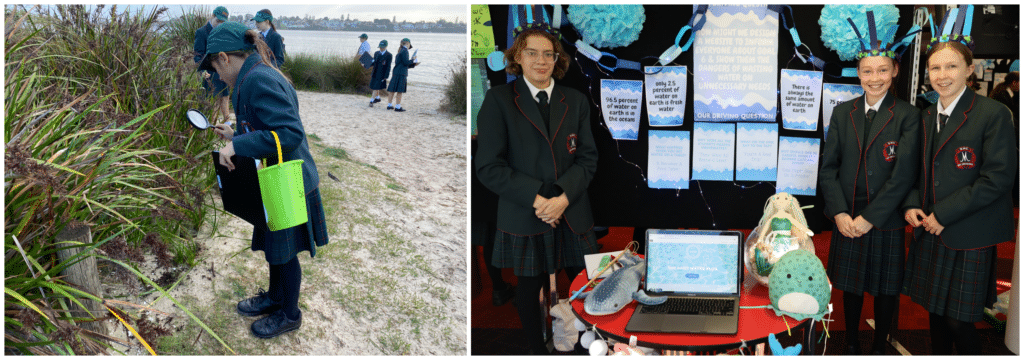
Two examples of the programs include:
- Fearless5, a two-week emPOWER program, involves guest speakers and flora and fauna-based incursions and excursions, which all lead to the design thinking process where they came up with suitable solutions to answer the big question. ‘How might we provide a safe and sustainable environment to protect Australian flora and fauna? Solutions were shared with the broader College community and parents through a ‘Friends of Flora and Fauna’ exhibition.
- Seek7, a term-long emPOWER program, involves students work in Humanities & Social Sciences and Science to develop the knowledge skills they need to create and provide solutions to an inquiry question provoked by United Nations Sustainable Development Goal Six (UN SDG 6): Clean water and sanitation. Students complete seven challenges ranging from local to global in scale, all reinforcing the importance of water and its effective management to sustain life on Earth now and into the future.
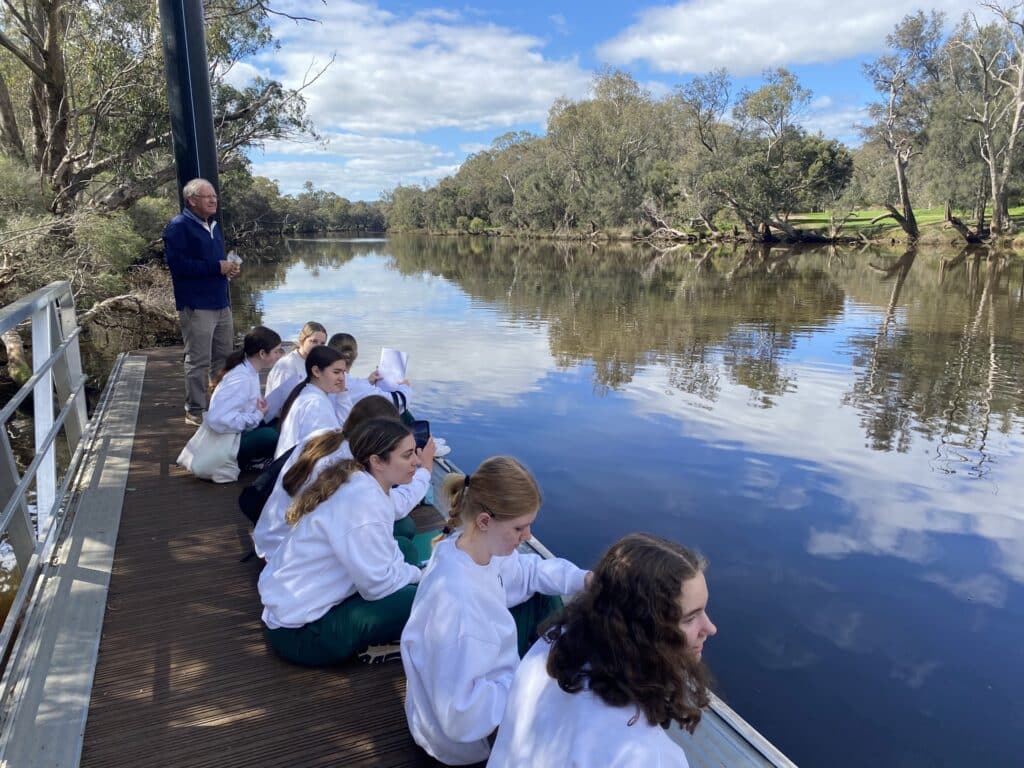
Learning Area Focus Areas: Sustainability is also a key aspect of many of our Learning Area programs, with students learning about environmental issues both in and beyond the classroom, for example:
- Outdoor Education expeditions
- Geographers field trip to Swan Valley
- Dance Showcase, where several pieces had environmental themes.
- Marine Science programs
Co-curricular: EcoSisters and Junior Sprouts are both thriving student co-curricular groups aiming to educate and bring about change in our community regarding sustainability. They lead initiatives for change and ensure student voice regarding sustainability is heard by College leaders. They lead Earth Day initiatives, are involved in awareness campaigns and provide sustainable options for students to consider.
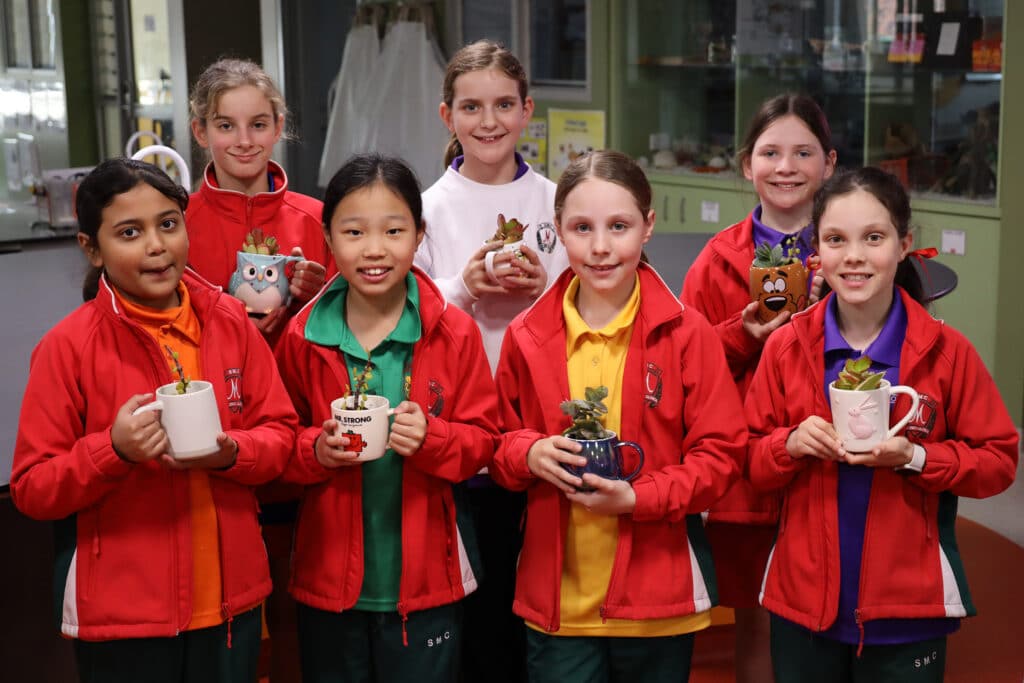
Earth Day: On our Inaugural Earth Day, we celebrated and took action to protect our planet. In 2023, students showed their support for the Sustainable Fashion goal by wearing blue, green, and brown tones. We also participated in the lights-off event, conserving 250 kWh of energy and encouraging our community to reflect on the impact of coal-powered electricity.
Furthermore, our students had the opportunity to engage with speakers from the Kaarakin Cockatoo Conservation Centre. The aim was to educate them about the endangered black cockatoo species, their significance in our local ecosystems, and how we can contribute to their preservation. Additionally, we organised a school-wide rubbish cleanup, aligning with the global goal of Global Cleanup.
Together, we made a meaningful impact and demonstrated our commitment to a sustainable future.
Three Bin System: The College is committed to reducing our waste and has worked closely with students to implement our organic revolution aimed at reducing waste and increasing recycling. Bottles, recyclables and organic waste are the three bin types that will assist the College in meeting our targets. While there are costs involved, we believe this is an important investment in the future of our planet. Students have been key in developing promotional videos, educating students and ensuring bins are effectively used.
"In Nature, There Is No Such Thing As Waste. In Nature, Nothing Is Wasted; Everything Is Recycled."
David Suzuki
Solar: The College is planning to install solar panels later this year. We have received quotations and are currently awaiting the processing of our application by Western Power so that we can proceed with the installation. Although solar energy alone will not meet all our requirements, it will greatly reduce our dependence on coal-sourced electricity. We will provide data on our energy usage and savings, which will be available for student research purposes.
Natives for the Future: Santa Maria has a rich history of rose gardens, which we will preserve. However, our future campus plantings will primarily focus on native species. This strategic choice ensures that we cultivate water-wise plants that contribute to a thriving ecosystem, fostering greater diversity of flora and fauna. As part of our car park development, we are excited to introduce 2000 native plants. Additionally, our Eco-sisters have proposed a collaboration between the College grounds staff and students to plant natives in selected areas. The retention of native trees remains a key consideration for our future developments.
Community Planting: Santa Maria students have played a crucial role in local planting initiatives, particularly in the Point Walter area, in recent years. They have generously offered their services to local groups, supporting various planting programs. Under the guidance of our dedicated staff, the students recently participated in tree planting activities. Moreover, they will continue to contribute to a scientific study that monitors the survival rate of banksia seedlings over the next two years at Blackwell Reach. This collaborative effort not only aims to revive the natural habitat but also enhances the overall biodiversity of the reserve, while preserving and enriching the local environment.
Sustainable Items: The College places great importance on offering sustainable options. Our café utilises biodegradable packaging and cutlery, which aligns with our organic waste bins. Events such as Mercy Day and parent events are designed to minimise waste and prioritise sustainable practices and choices.
By actively engaging in sustainability education, schools can inspire and empower students to become catalysts for change. Together with schools, parents can cultivate a positive learning environment that nurtures students’ growth as responsible guardians of the planet.
It is our responsibility to create a future where we live within our planet’s boundaries and support one another for mutual prosperity. By investing in sustainable education, we equip young people with the knowledge and skills needed to be environmental stewards to safeguard the wellbeing of our planet. The voice of our youth and their proposals will guide the care of our planet into the future.
We should never underestimate the capacity of our young people to drive change.

Michelle Attains Lead Teacher Status
Our Head of Professional Learning, Michelle Carrick, recently attained national certification as a Lead Teacher, one of only 64 people nationally to have attained this certification in 2023.

From the President: May 2024
We have some great stories in this month’s blog. Also Look out for information about our OGA Movie Night screening of The Way, My Way.
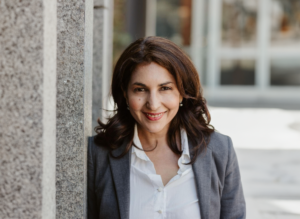
Lisa Sorger: Sisterhood Network Series
Join us for an inspiring evening at the second session of our Sisterhood Networking Series with Dr Lisa Sorger (Ramakrishnan, 1987).
- Featured
Author: Santa Maria College
Santa Maria College is a vibrant girls school with a growing local presence and reputation. Our Mission is to educate young Mercy women who act with courage and compassion to enrich our world. Santa Maria College is located in Attadale in Western Australia, 16 km from the Perth CBD. We offer a Catholic education for girls in Years 5 – 12 and have 1300 students, including 152 boarders.

